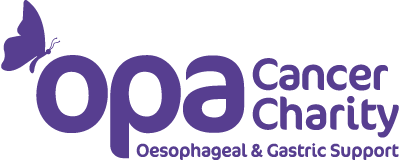What to Eat—and What to Avoid—If You Struggle With Acid Reflux, Heartburn, or Indigestion
Not only is acid reflux one of the most common health conditions, it’s been on the rise for the last few decades. If you’ve ever experienced that ominous feeling of burning in your chest, we know you want answers on what to do about it. Before taking a deeper dive into the how, why, and what to eat to treat it, it’s important to clarify what we mean when we say “acid reflux,” as opposed to heartburn, indigestion, and GORD. The terms are related, but often conflated.
A quick breakdown…
“Heartburn is a burning feeling in your upper chest typically caused by acid that’s supposed to be in your stomach rising into the Oesophagus,” says Willow Jarosh MS, RD. “The tissue of the Oesophagus isn’t equipped to handle such an acidic environment, unlike the tissue of the stomach, which is why there’s discomfort associated with having acid in the Oesophagus.” Heartburn is a symptom of acid reflux and happens most often after eating, which is why diet can play such a crucial role.
“Meanwhile, indigestion is a very broad term for an upset stomach or abdominal discomfort, bloating, nausea, or uncomfortable fullness usually felt after eating.”
Heartburn and indigestion can happen occasionally due to acid reflux, or they can happen frequently if you’re suffering from GORD (gastroesophageal reflux disease). While acid reflux can be uncomfortable at best (at worst you might find yourself in a vomiting and nausea spiral lasting hours), there are plenty of ways to mitigate the symptoms with a few healthy lifestyle tweaks, and by opting for foods that neutralize stomach acid.
It’s important to note that while the occasional acid reflux shouldn’t be of concern, if you’re experiencing it frequently, you should see a medical professional. Sometimes other diseases, like heart issues, can cause gastrointestinal symptoms.
Related Items
What usually causes acid reflux?
“For the occasional heartburn, things like lying down soon after eating, eating a very large or especially high-fat meal, drinking a large amount of liquid with a meal, or eating or drinking something that irritates or relaxes the gastroesophageal sphincter can cause occasional heartburn,” Jarosh says. “As for GERD or frequent acid reflux, certain medications, frequent alcohol consumption, and smoking can cause this. Pregnancy, especially as the baby gets larger, can put pressure upwards onto the stomach and push acid into the Oesophagus. Hiatal hernia can also affect pressure and allow acid to move into the Oesophagus.”
Diet and lifestyle remedies for acid reflux
Adopt some pre-, mid-, and post-meal habits.
In light of this, if you’re suffering from burning in your chest, you might want to immediately consider elevating the head of your bed (most people suffer at night) to keep the acidic food mixture lower in the stomach.
“I also recommend not eating too close to bedtime and avoiding large evening meals,” says Abisola Olulade, MD, a family medicine physician. “Other things that may help, but haven’t been consistently shown to be beneficial, include avoiding smoking, tight-fitting clothes around the abdomen, and increasing saliva production by chewing gum, which may neutralize refluxed acid and increase the rate of acid clearance.”
Jarosh further advises an after-dinner walk and notes that since the volume of the stomach contents can push acid up towards the Oesophagus, having your liquids between meals can help keep the volume down. You’ll also want to chew with your mouth closed to avoid ingesting too much air with your food, says Seema Sarin, MD, the director of lifestyle medicine at EHE Health.
Pay special attention to nutrition.
Dr. Olulade says another good solution for acid reflux troubles is simply to eliminate specific things from your diet that can trigger it, including caffeine, spicy food, food with high fat content, and carbonated beverages. Peppermint has also been shown to relax the gastroesophageal sphincter, so avoid it in tea. Opt for water whenever possible.
You can try minimizing or eliminating particularly triggering foods with a GERD diet plan. “This would namely entail avoiding garlic, onions, citrus fruits, tomatoes/tomato products, and chocolate, along with the aforementioned high-fat and spicy foods,” says Jarosh.
On the flip side, do reach for food choices that are less triggering, including whole grains, green and root veggies, nuts, bananas, melons, watermelon, eggs, lean meats, and non-sour, probiotic-rich, low-fat yogurt.
When to reach for an OTC or prescription remedy
Unfortunately, while food is the best place to begin the process of prevention and mitigation, if you’re wondering what relieves bad heartburn fast, your surest bet may end up being an over-the-counter or prescription option—and your doctor can guide you toward the best one for you.
“Antacids are medications that neutralize the effects of acid in the stomach and they typically work within minutes to help relieve the symptoms of reflux,” says Dr. Olulade. Examples include Tums, Mylanta, or Maalox. These won’t permanently change the stomach’s acid production, but will reduce them in the short-term to manage the symptoms.
Another option is a histamine receptor antagonist, found in brands like Pepcid and Tagamet. “Histamine receptor antagonists decrease the release of acid by blocking histamine receptors on stomach cells,” Dr. Oluade explains. “They work more slowly than antacids—it can take up to a few hours to feel an effect, but it lasts longer.”
Proton pump inhibitors (think: Prevacid, Omeprazole, and Nexium) are typically used when the aforementioned options fail to help. “They’re the most powerful blockers of stomach acid. They block the pumps that release acid in the stomach and are typically used daily for two weeks instead of as-needed. They’re most effective when taken 30 minutes before the first meal of the day because this is when the proton pumps are at their highest amounts—after a prolonged fast.”
This article is from Real Simple – https://www.realsimple.com/health/nutrition-diet/acid-reflux-heartburn-indigestion-remedies


